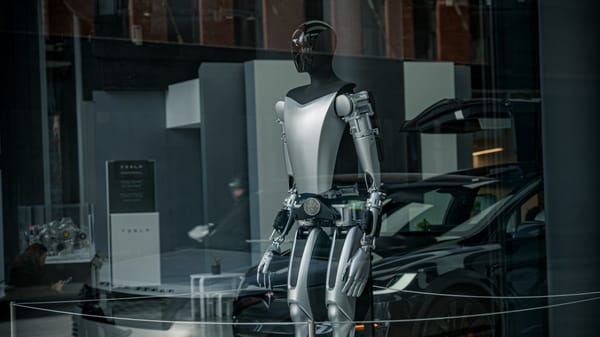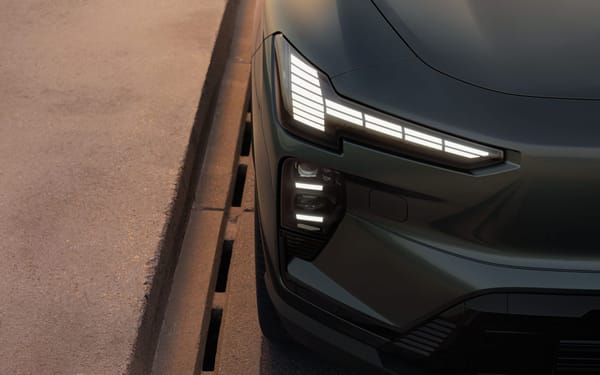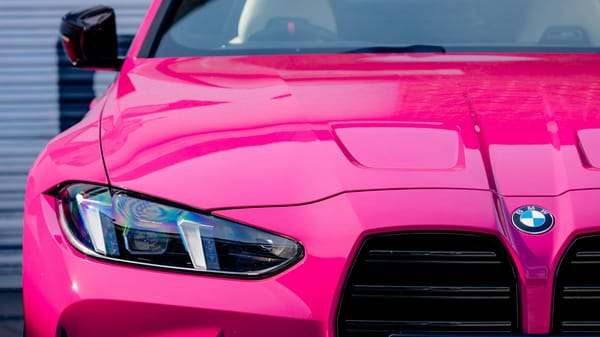Would you buy a car from a smartphone company? Because from 2027 you can
Shocking news which you could've seen coming from miles away: Xiaomi is going to sell cars in Europe.

Shocking news which you could've seen coming from miles away: Xiaomi is going to sell cars in Europe. That is what the companies president Lu Weibing told investors during an earnings call on Tuesday.
Assuming the fledgling car brand has a bit of trouble delivering those hundreds of thousands of pre-orders to customers, the launch date for the EU expansion will come no earlier than 2027.
What made less sense is the reason Xiaomi is choosing Europe as the next market to conquer. You would assume that since every other mayor Chinese EV-builder is selling cars on the Old Continent with great margins, Xiaomi would do it for the same reasons. But no. According to Weibing Xiaomi is choosing Europe deliberately because "it's the most difficult market" outside of China.
And that is of course incredibly true. The US is way easier with their 100 percent tariffs on Chinese electric vehicles and the still poor EV-charging infrastructure. It's way harder to sell a car in a place where charging is abundant, people are less averse against EV's and the tariffs are - at least in comparison to the US - quite reasonable.
But maybe Weibing is right. Maybe Lu has a crystal ball in which the 2027 EV-market in Europe is clearly visible and even more over saturated than it already is. At least, that is when we assume Xiaomi is launching their Porsche and their Ferrari clones to market. They would probably land in the 50.000 euro's and upwards price point at which the most competitors are active. Not only the Chinese ones, but also the European and American ones.
One factor that will be hard to crack is a well oiled service network. Every country has its own way of working, which makes it impossible to just roll out one solution in every market. Not getting it right the first time is not even negotiable anymore, because in 2027 the competition is more than up and running in this area. Choosing to buy from Xiaomi without a decent service network, would be a sacrifice that many won't be willing to make anymore.
We could also go about and connect dots that probably aren't supposed to be connected. Remember the Xiaomi SU7 at the gates of Ferrari? What if Xiaomi is doing a collaboration model with the Italian Stallion to absolutely blow every competitor out of the water when it launches exclusively in Europe?
I do think that would upset not only Europe and China, but the whole world. I do also think al lot of Italians will show up at the gates of Ferrari wielding picks and torches, but that's beside the point here.
But in all reality, I think we're getting a bit too hyped up about a Xiaomi launch in Europe. Why? Because the insanely low prices the brand is asking for cars in China will not be on the stickers of European cars. What well be seeing here will be well and very competitively priced cars with a great standard level of equipment. And that will lead to less interest than is being generated now in China.
Regarding that interest. I do wonder how Xiaomi's marketing tactic of charging only a couple of bucks for a pre-order to pump numbers and create a hype, will work out in a less hype sensitive area like the EU. Over here we're more likely to wait and see. If we would get on every hype train, Chinese cars would've been everywhere on European roads, but instead you see them quite marginally. Their numbers are growing, but not as fast as people initially thought.
2027 is still far away. A lot can change in the mean time. Xiaomi could come to the realization that making reliable and safe cars is way to hard and all that government attention is unwanted, so it decides to just keep making smartphones instead. Or there could be some scandal involving a Chinese car brand which causes sales of these cars to be forbidden in the EU.
Probably not, but let's not just cross it all off the list yet.
In other news:
For the first time ever Chinese EV-manufacturers are investing more money outside of China. Most of the 16 billion dollars which is not being spent in the homeland, goes towards battery factories.
Chinese companies in the electric vehicle industry invested more overseas than domestically for the first time in 2024, according to a report by Rhodium Group.
Firms invested around $16 billion overseas, mostly in battery production, and $15 billion at home, which Rhodium said represents an “historic shift” after years of directing around 80% of investment domestically.
Armand Meyer, senior research analyst at Rhodium, said that overseas investments now outpacing domestic ones reflects a saturated Chinese market and the strategic appeal of expanding abroad for higher returns.
Tesla has invented arm rests in the most Tesla-way ever. In the new Tesla Model Y L, the one with an 18 centimeter longer wheel base and an extra row of seats that is being launched in China, has more features than you'd think. On the second row the armrests on the inside of the chairs raise up from the seats. Yes, you read that right: up from the seats. Not down from the back rest. And yes, they are of course motorized. I wonder why no other car manufacturer has thought about this. Oh wait, maybe because you're quite likely to sit on them or to get stuff pinched underneath them impairing the movement. Tesla just has to find this out for themselves.
Geely's Livan brand has launched a car you didn't know you wanted. To be fair, it's a bit of a stretch to call it a car when the manufacturer itself has called the model 'Smurf'. Now, before you take a look, imagine a smurf car and add a generous splash of Minecraft to it and sprinkle a little Japanese Kei Car on top. That's it.





